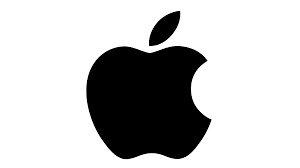In the high-stakes battle for AI dominance, Apple is making bold moves to assert its carefully plotted strategy. The recent unveiling of the latest iPad Pro lineup, powered by the all-new M4 chip, marks a significant step in this direction. According to Apple, the M4 chip features a CPU that is 50% faster than its predecessor, the M2, while its GPU delivers an astounding four times the performance. However, what truly sets this chip apart is its neural engine, which surpasses any neural processing unit currently available in devices that run AI tasks locally.
This advancement comes at a crucial time for Apple, which has recently intensified its focus on AI development after initially lagging behind competitors like Google, Microsoft, and Samsung. Recognizing Siri’s limitations, Apple is hard at work to reclaim its position as the leading smart assistant, leveraging cutting-edge AI technology. The upcoming Worldwide Developers Conference (WWDC) on June 10 is expected to showcase a new and improved Siri, powered by a sophisticated generative AI system and other innovative products.
Apple’s commitment to generative AI is evident in its strategic actions. The company has been actively recruiting AI talent from other tech giants, particularly Google, to bolster a secretive research lab in Switzerland. In April, Apple unveiled ReALM, a model that excels in interpreting on-screen visuals, surpassing GPT-4. Additionally, Apple introduced MM1, its first family of multimodal large language models (LLMs). Strategic acquisitions, such as the purchase of the Canadian startup DarwinAI, further underline Apple’s dedication to advancing its AI capabilities.
More on the Apple M4 Chip
During the company’s second-quarter earnings call, CEO Tim Cook expressed confidence in Apple’s generative AI strategy. “We believe in the transformative power and promise of AI, and we believe we have advantages that will differentiate us in this new era, including Apple’s unique combination of seamless hardware, software, and services integration; groundbreaking Apple silicon with our industry-leading neural engine; and our unwavering focus on privacy,” Cook stated.
Apple’s deliberate approach to generative AI contrasts with its competitors’ rapid adoption and investment strategies. When generative AI gained mainstream attention in late 2022, companies like Microsoft, Google, and Amazon quickly invested billions in startups such as OpenAI, Anthropic, and Inflection. Apple, however, chose a more reserved stance, refraining from releasing any named generative AI products during this period.
Unlike its competitors, which often release AI features as standalone offerings or beta versions, Apple aims to develop comprehensive, polished products with deep integration into its ecosystem. This approach aligns with Apple’s vertically integrated structure, which controls both hardware and software. Developing AI solutions that fully exploit the potential of Apple’s custom silicon, like the A-series chips in iPhones and the M-series chips in Macs, requires intense collaboration between hardware and software teams to ensure optimised performance and user satisfaction.
Apple’s cautious pace in the generative AI race, while frustrating to some, aligns with its overarching strategy of delivering high-quality, integrated products. As the company accelerates its AI initiatives, investors and consumers alike are eager to see if Apple’s patient strategy will pay off, setting new standards in the AI-driven tech landscape.
See also: AI Deep Fakes Ignite Fierce Debate Ahead Of 2024 India Election


















